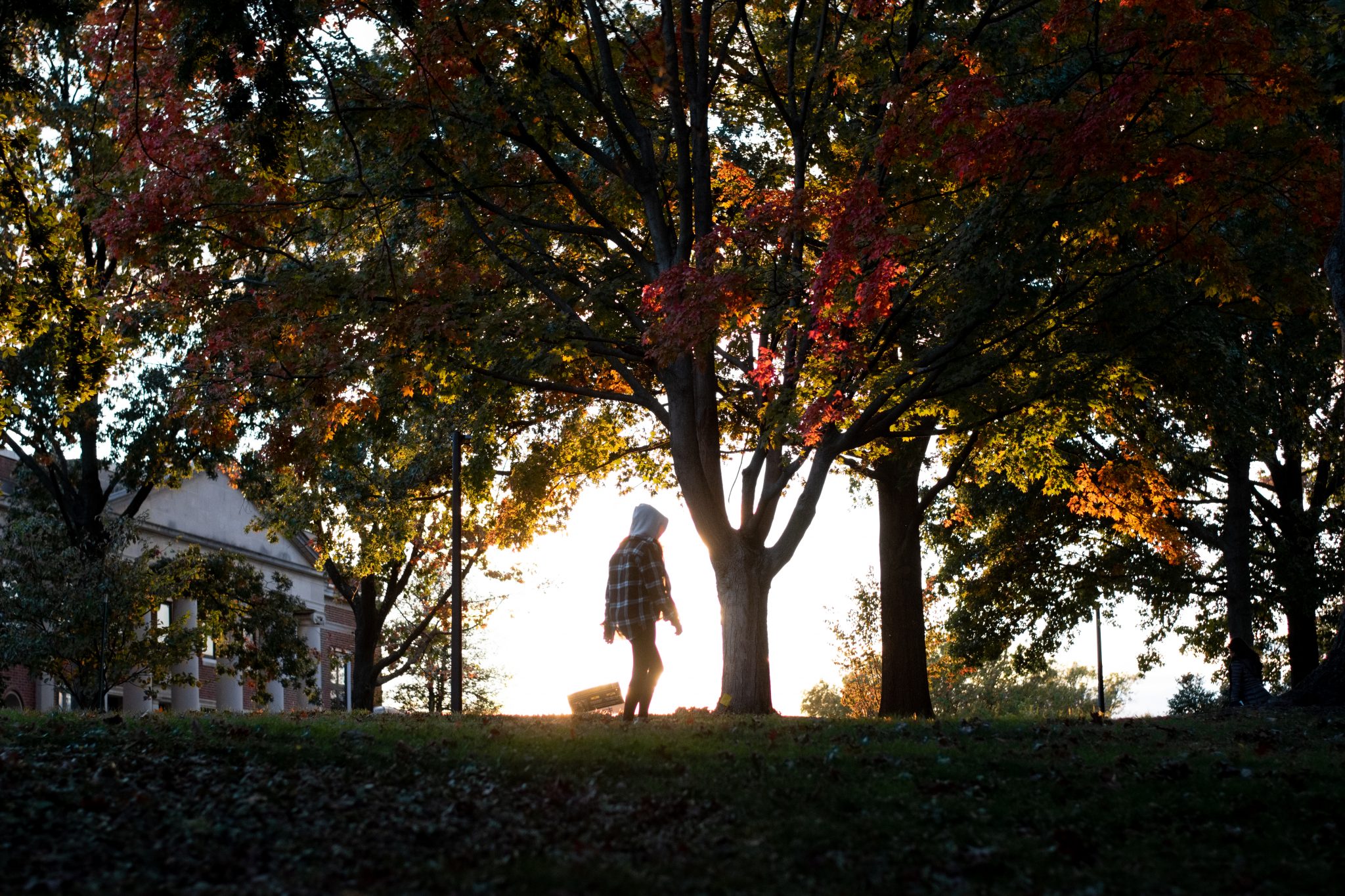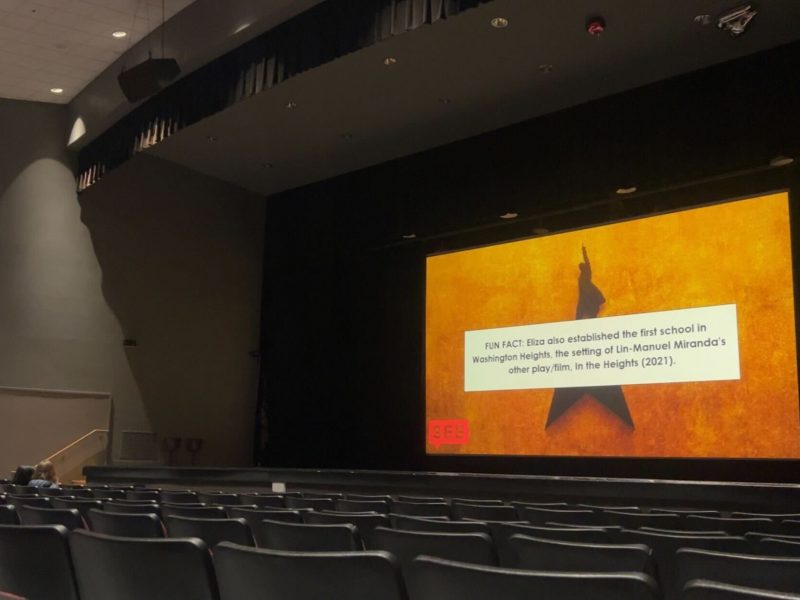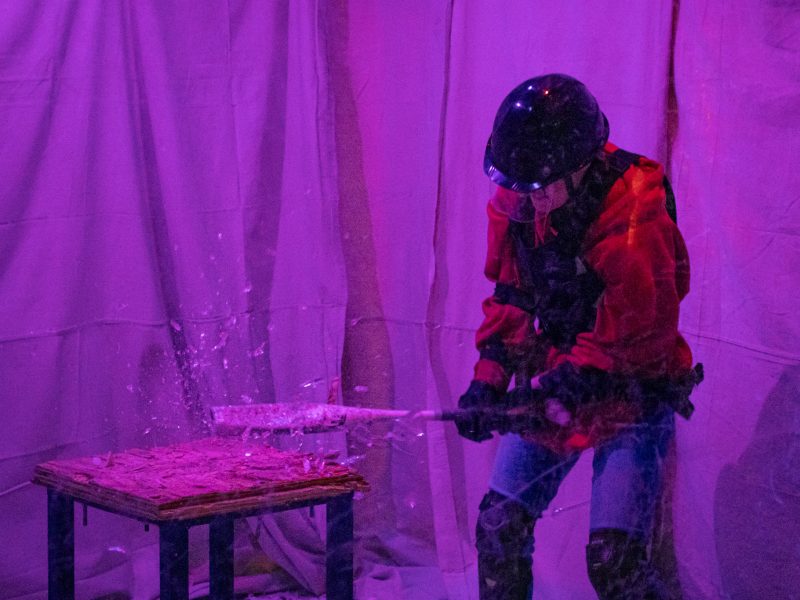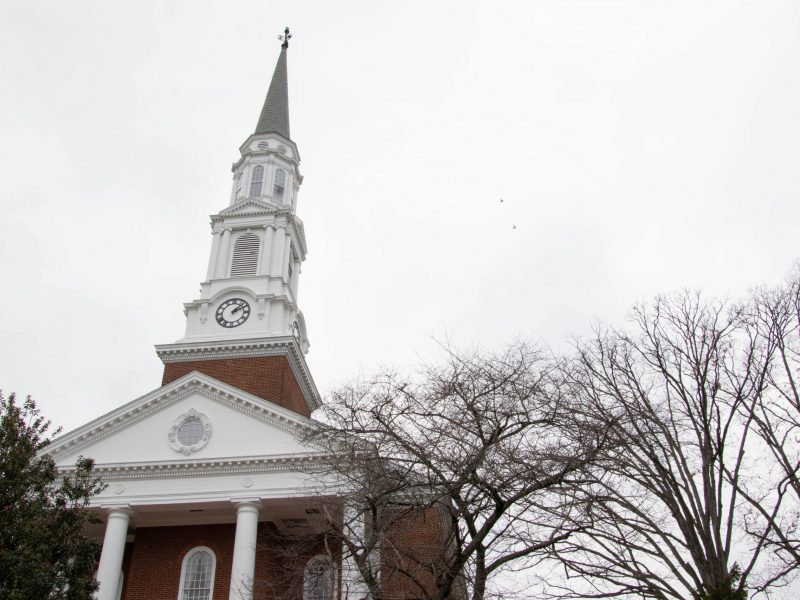Walking down the hallway in Harford Hall, there seem to be fewer conversations, and student life appears less lively than at the beginning of the year.
Whether stressed out from midterms or staying inside to avoid the brisk breeze of seasonal change, many students are hunkering down and spending more time indoors to study.
“I think the change of the seasons, for most people, kind of affects their moods to a degree,” Alivia Saunders, a senior public health science major, said. “So it’s a lot easier to just kind of be doing work in your room [when] it just gets really dark and kind of gloomy.”
As students readjust to pre-COVID-19 pandemic classroom attendance policies and face in-person exams, many University of Maryland students feel pressured to be productive. But the recent shift to cold winter mornings and fewer hours of sunlight means lots of students also struggle to motivate themselves to go to class.
“I feel more tired [earlier in the day], especially as the sun starts setting really early,” sophomore marketing major Megan Kellenberger said.
Last winter term, the university moved many classes online. But this semester, with a majority of classes back to in person or hybrid learning, there’s a lot of academic pressure to stay up to date on course material.
[Show your Terp pride this Halloween with these UMD-themed costumes]
“Last spring, all my classes were like ‘If you’re sick, don’t come,’ [or] ‘we’ll have the Zoom lecture, we’ll record it and post it anyway, so you’re fine,’” senior psychology major Serena Kemp said. “I’m getting a lot less of that now in my classes, so there’s that structural pressure from [how] our classes are set up.”
There’s also a lot more social pressure since mask mandates were lifted, Kemp added. Between that and involvement in extracurricular activities, it’s hard for students to chalk up enough energy to get real enjoyment out of recreational activities. Students are also not prioritizing self-care and rest out of a feeling of being less productive.
“Rest is productive,” Kemp said. “If you’re dead tired, you’re not going to do well on your assignments anyway, so it’s not really worth pushing through just to do it.”
Some students are winterizing the activities they do in the summer to combat the seasonal gloom, either taking the fun indoors or visiting Washington, D.C., for a change of scenery. Others are looking forward to the holidays to get them through the rest of the semester.
“It gets me excited, Thanksgiving,” Kellenberger said. “I definitely like spending time with my family too.”
Students also noted changes in student turnout since before the pandemic.
“When I think of how there’s been a couple days where it’s been downpouring this semester, I’ve definitely noticed a lot more people skipping class than I did when I was a freshman, pre-pandemic,” Saunders said. “It’s maybe like half the people that you would expect to be there.”
The university’s Help Center and Counseling Center have experienced a major spike in serious mental illness-related calls since last year, Kemp said, who is also the Help Center’s administrative director. About three times the number of crisis-related calls were received this school year alone.
A crisis-related call can be anytime a student is in an unsafe physical situation or mental state. This includes suicidal ideation, in which there is a likelihood that someone will take action at some point soon in the future.
[New York dance artists preview piece on COVID and system failures]
Though students in dorms have access to resident advisors trained in discussing the resources available at the Counseling Center, Saunders, a resident advisor in Harford Hall, said the number of students who use the center is low.
“It takes forever to get in,” she said. “Some people don’t really feel heard by their counselors and that, kind of, is discouraging to them.”
The Counseling Center is working to offer more availability for drop-in counseling, but the Help Center — a student-run, anonymous and confidential organization — provides more immediate help.
“The second you call us, we pick up, so there’s no wait times,” Kemp said. “Whereas if you are seriously struggling, it would be worth going to the counseling center to get more licensed support.”
While waiting for an intake appointment at the Counseling Center, students can still call the Help Center for peer counseling.
“The Help Center is a great place to start because you can get more of an idea of how you’re feeling and have somebody to talk to about it and figure out what you want to do about it,” Kemp said. “But also if you are really struggling with things like seasonal depression or depression and anxiety in general, like school stressors, all of those things.”
Although it’s common for students to blow off somber moods and downplay stressors, it can be serious, Kemp added.
“Get help before it gets too bad, because the further you let it go, the harder it is to get back to where you were,” she said. “It’s just more difficult once you’ve gotten a lot more depressed or had a lot more struggles.”



